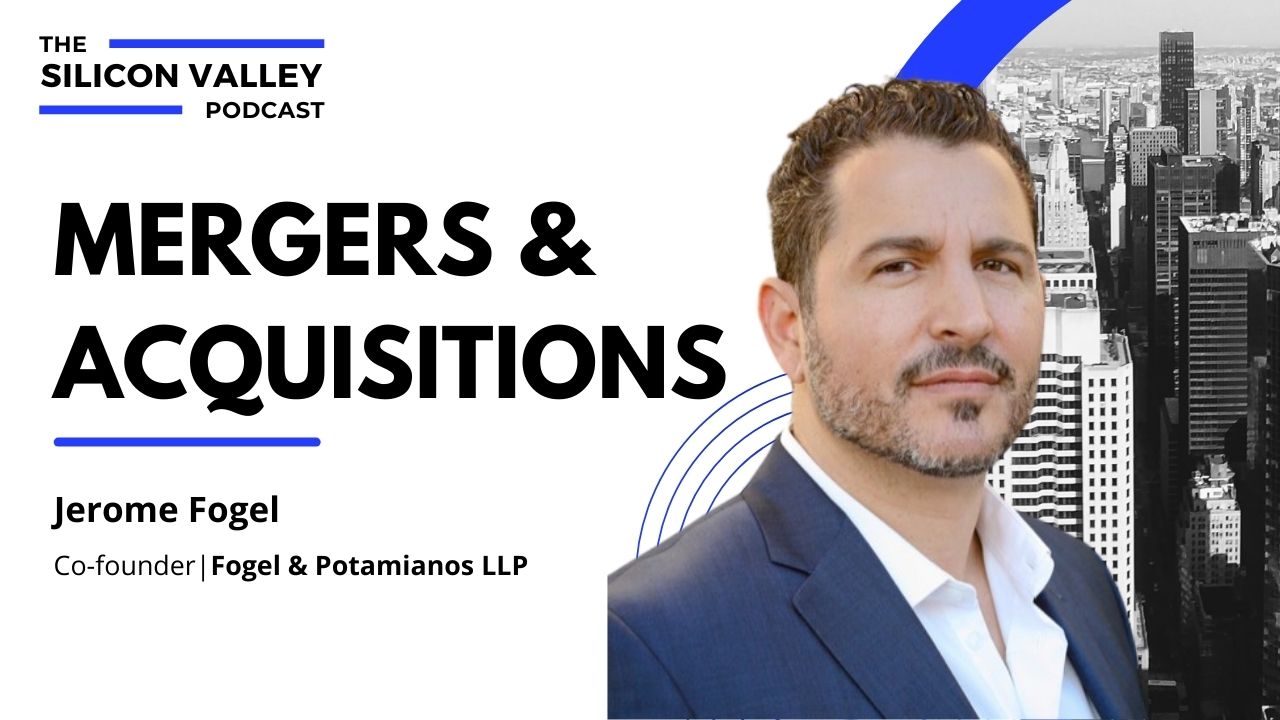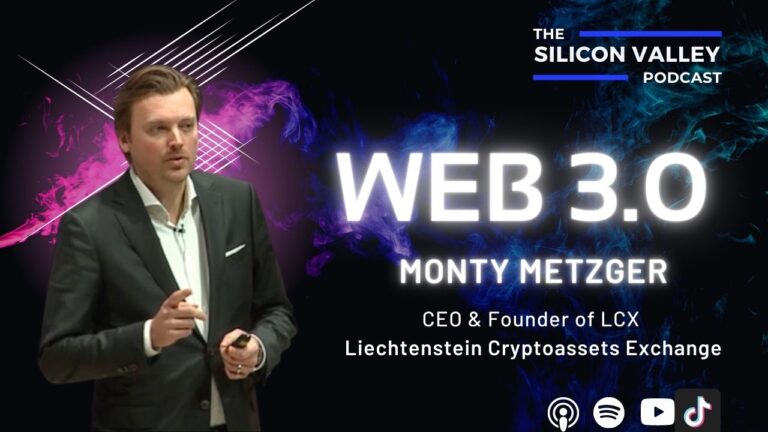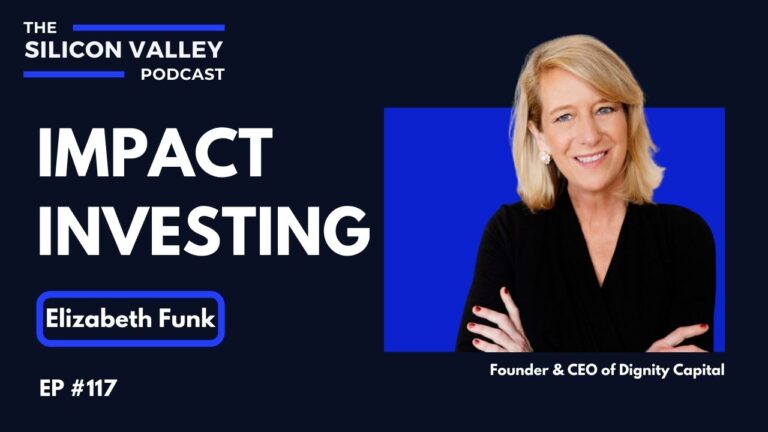Jerome Fogel- A Lawyer’s Insights into Mergers and Acquisitions
On this week’s episode, we interview Jerome Fogel. Fogel is the co-founder of Fogel & Potamianos LLP. Known as a dealmaker and innovator in the legal community- he represents successful entrepreneurs, small and lower middle market companies, and high-profile sports and entertainment leaders. He also serves as the go-to offsite general counsel for a number of organizations. Fogel has participated in over 100 corporate, non-profit, and entertainment transactions including company formations, mergers & acquisitions, equity financing, high-profile partnerships, talent agreements, digital music distribution, television distribution, publishing, licensing, and commercial transactions.
Shawn Flynn (Host): When a startup is going through an exit, can you give some suggestions for first time founders going through that process?
Jerome Fogel: When it’s your first time, you don’t know what you don’t know. The first thing is you need a team of advisors around you. Number one, you need an investment banker. You need somebody that’s going to walk you through a process, that’s going to help buyers and has relationships. They are going to do the things you can’t do, so you can stay focused on running your business. I don’t want a founder to take their eye off the ball and become disheartened if a deal doesn’t go through. Get your team of lawyers and investment bankers around you.
Number two is you really want to match objectives. Don’t just go for the best price, because some buyers will strategically come in with a high price and then they start to take more haircuts as they go through due diligence. Find the right buyer in terms of your objectives and your goals. What do you want to do with your employees? Is this a legacy? Do you want a high upside? Do you just want cash out? You have to match your objectives to the buyer.
Number three, is that I advise every seller to read the docs. I know it’s a lot of work. It takes time. When you get the docs read them. Be patient because deals take time, but also know that time can kill deals too. You have to move quickly because windows shut as quickly as they open. Talk to an investment banker, accountant, or lawyer early in the process.
SF: When do you decide to talk to that lawyer, accountant or investment banker? When is too soon?
JF: It’s like stepping onto a football field, and walking into the end zone and just trying to score a touchdown. You really have to be ready, you’ve got to be prepped. You’ve got to be working out to be in good shape. I would say a couple of years early get your CFO, investment banker, even talk to some attorneys and start to clean up the corporate governance. Start to clean up the finances and start to think forward about state planning and tax issues. A couple years early, start to engage with people and get to know who you want to work with. As you have a year of trailing income to go with, and you start early, you have a better chance. Some people come to me (unfortunately) after they’ve done a deal and they’ve made mistakes, or they’re already in the LOI phase. So it’s easier said than done. Two years is awesome, but a year is certainly ideal.
SF: Does the type of company matter, such as whether it’s a startup in the tech sector, or a manufacturer, for example?
JF: It depends on how complicated a structure you have. If you’re a smaller company, a closely held board is probably easier. With a larger company you’re going to have to want an M&A subcommittee that’s going to have to approve things. If you have a similar closely held structure, that will move things faster. If it’s more complicated and large, you have to start sooner and it’s going to be more of a formal process. Additionally, the more tech and IP you have, the longer it takes to get situated. If it’s a simple kind of retail business, that’s one thing, but if you’ve got a heavy tech company with lots of IP, you want more time to make sure you go through everything, and to make sure the IP is all straightened out. Make sure there’s no skeletons in the corporate governance closet.
SF: Going back to the basics- C Corp, LLC, S-Corp, do those differences affect the time needed?
JF: Most sophisticated buyers want to step up and tax basis, so they want to purchase assets from an S corp or an LLC. That said, if client is on a path to an IPO and they’re in a C Corp, it’s going to take more time to figure out the tax consequences and what the buyer wants to do. If they buy shares that may change the effective price a little bit. Generally, an S corp or LLC is kind of the standard vehicle to purchase assets from. However there’s tons of other reverse mergers and other tactics that can be used, but I would say a C Corp will take a little longer than an S or LLC.
SF: At the beginning, when you’re talking to attorneys, sometimes they try to take over the deal. What’s your experience with that?
JF: I was working on a deal last year where the attorney was fine, but they did not have the type of experience that was relevant to this particular deal. It was painstaking going through every single point by point, rather than honing down on the top three or four things needed to get the deal done. I’m working on a deal right now where the other attorneys are experienced. We’re saying okay, here’s the four or five things you need to work on. We’ll figure out the rest. Whereas this attorney was going from paragraph one all the way to Z, and we’re on a phone call for four or five hours and really steering the deal and negotiating over every point trying to win every point.
The problem with that sometimes is attorneys can be deal killers or deal makers. They can be killers if they try to win every point, versus trying to win the deal. As attorneys, you have to be able to say to your client, listen, this is my legal hat that I’m putting on. I’m not making the decision.
I took a venture capital class with Scott Perlin, who did the Smith and Wollensky deal. One of the cases we wrote about was a deal that a VC was going after. His attorney said “I don’t like the litigation risk. I advise you not to do the deal. This is too risky.” Well- that deal ended up being a 100x deal. The venture capitalist said “I will never take my attorney’s advice again on this.” So, I tell clients that story all the time. I say “Listen, I’m just here as an attorney, I’m looking from a risk perspective, but you need to really tell me what your level of comfort with risk is.” I also give clients a green, yellow, or red light option. Is this a green light? Do you want to do this no matter what? A yellow light deal would be where you have some concerns, and are using caution. Or is it a red light deal, where you don’t know if you even want to do the deal. The attorney and the client really have to be on board, to have the same risk tolerance.
SF: Earlier in the podcast, you mentioned how Angel Investors can lead to bigger investors, which often leads to even bigger investors. How do you vet investors to see if they are the people who will lead to the best outcome?
JF: I’ve seen clients that are doing arm’s length deals with new sources of capital, which is really hard. The clients that are the most successful already have relationships. For example, a client that’s on their fourth or fifth deal, and so they’re able to get 10 or 20 people on the cap table within 30 to 60 days on their pre-seed round. Now, once that happens, then they have relationships with one of the angels who, because of their other venture, has a relationship with a very well known PE firm. Then the PE firm comes in, so what happens is you have somebody that’s on your cap table, that you have a relationship with that you like and trust. That person is now bringing in this PE firm, so you’re not coming in cold. They’re doing some of the vetting and due diligence for you. It’s really hard from what I’ve seen to just come into a brand new relationship and to attract institutional capital.
SF: You also mentioned earlier that “Time kills all deals.” We know that deals open up as quickly as they close. Do you have any stories, can you elaborate a little bit more on that?
JF: I had a client who is a fantastic, really well known person in his field. He had a couple of celebrity endorsers, who were going to take a piece of the company and help them raise money. We tried to nail the deal. This was back in October of last year. By November/December their attorneys were looking at the docs, we got our docs back to them, etc. Their attorney took a couple months to look at the docs.
By the time it’s March, they moved on to other things. Other opportunities had come, and they just lost interest in the deal. It wasn’t that it wasn’t the right deal, it was just that that deal didn’t happen in the first 30–60 days when there was momentum and excitement. I’ve seen that happen with other deals for clients, who get bogged down in the details, and then the excitement and momentum leaves.
You really have about 30 days. Successful people are busy, and new opportunities come their way all the time. If you don’t have their attention, they’ll move on to other things, and it’s the same in the M&A world too. You got an opportunity, you’ve got to seize it.
SF: Okay, now let’s say the deal goes through. How does the acquiring company make sure they maximize the value of what they’ve just acquired?
JF: Here’s what I tell buyers, and I even will tell sellers. You close the deal. You think you’ve arrived. Now, the hardest work is ahead of you. You’re going to have to figure out how to merge cultures, people, systems- it’s a lot of work. I tell the buyer to go and have an in-person dinner, bring your team and have everybody there. The seller’s team is still there, and they are scared about what’s going to happen. You have to say- “We come in peace. We’re here to make this successful.” You have to clarify that it is an environment with open communication, and set people at ease. People are afraid that they’re going to get let go, or that their compensation or benefits are going to change. They’re afraid that they’re going to get managed differently. There’s a lot of fear that you’ve got to deal with. You want people to be comfortable, to be able to operate at a high level.
SF: Jerome, you have had a ton of interactions throughout your career. What was the biggest mistake or learning experience you can share with your audience?
JF: We had a client that came to us after he had completed a deal. It was a media transaction. He had some family issues going on, so he was really eager to just close the deal. There were a whole host of mistakes. Number one, he went cheap on the docs in terms of his counsel, and he accepted a lot of things in the documentation that he shouldn’t have. Second, the buyer wasn’t vetted well. There was a seller carry provision. Essentially what happened was that the buyer rated the company.
The buyer, basically fronted as if they were financially sound. They came in and they got a loan to pay the upfront lump sum. They were supposed to be carrying out. The buyer defaulted on the note, rated the company, and pulled the cash flow out.
We had to get litigation counsel for the seller (who eventually won.) In terms of what they spent on the litigation counsel versus what they ended up getting, it just ended up being a terrible situation. I think that the thing that I have learned in this deal is that unfortunately, good things don’t always happen to good people and bad things don’t always happen to bad people. Time and chance happens to everybody. You can’t let your emotions drive the deal. You have to let the deal itself unfold, and make the right decision long term. You never want to be in a hurry to do a deal with the wrong person. If you say no to the wrong deal, that’s an amazing decision! And now you freed yourself up to say yes to the right ones. There is a guy named Chad Johnson who’s a really great coach that I’ve now been working with. He said, “Saying yes is what got you here. Saying no is what’s going to get you there.” You’ve got to be able to say no to the wrong deal, no matter what is happening emotionally. If you can do that, you’ll free yourself up. If you don’t, it could be one of the most costly mistakes of your career.






